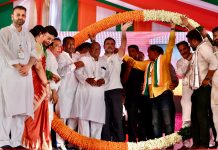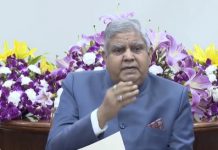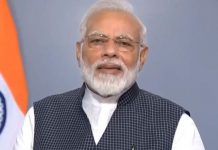Both HM Amit Shah and DM Rajnath Singh have indicated the potential withdrawal of the AFSPA from the Valley after the LS poll. Should this happen, it would be a big deal as the Centre so far has been steadfast in its refusal to withdraw the law, in force for the last 35 years. A report by Riyaz Wani

In a span of one week, both the home minister Amit Shah and defence minister Rajnath Singh have indicated the potential withdrawal of the Armed Forces Special Powers Act (AFSPA) from the Kashmir valley. This is the first time the BJP government has promised to revoke the law and that too by no less than by the second and third most powerful men in the cabinet.
“The situation is getting normal. We are considering revocation of the AFSPA,” Shah said in an interview to J&K Television channel in the last week of March. “The government has already drawn a roadmap for the withdrawal of troops and the process will be initiated after elections.”
Later, the Defence Minister in another interview to a New Delhi-based TV channel echoed Shah, saying the law can be withdrawn from J&K.
Though AFSPA has been in force in J&K for the last 35 years, its revocation has always been a metric of the return to peace. But the centre has so far stubbornly refused to withdraw the law, more so, the current BJP government.
The AFSPA was enforced in the Kashmir Valley in 1990 – a year after the outbreak of militancy – and was extended to Jammu a decade later. The Act gives the armed forces immunity from prosecution while operating in the internal conflict zones.
In 2013, the then J&K Chief Minister Omer Abdullah almost got the then UPA government to agree to a step-wise phase out of the AFSPA from the then state, starting with the areas with zero militant presence and, consequently, zero army footprint. But, zero footprint or no, the army consistently stonewalled any determined bid to remove the AFSPA by invoking worst-case security scenarios should the Act be lifted, even if partially.
Earlier in 2011, with militancy-related fatalities down to 183, the then General Officer Commanding of the Army’s 15 Corps in Srinagar, Lt General Syed Ata Hasnain, had even highlighted the unlikely possibility of Kashmir becoming an independent nation by 2014 should the AFSPA be withdrawn. The army typically becomes apprehensive anytime it perceives a threat from the potential power vacuum that the repeal of the AFSPA would create. Lt General Hasnain, in fact, raised the bogey when many in the UPA government, including the then home minister P Chidambaram, were inclined to review the Act.
Last year, in February, the centre also decided to embark on a phased withdrawal of the Army from Kashmir. This is the first time since the separatist struggle broke out in Kashmir around 35 years ago, that New Delhi took the step. But did this make it significant? It didn’t. The Army was to be replaced by paramilitary forces that are equally trained in counter-insurgency operations. So, on ground, this made little difference.
The withdrawal has a symbolic value though: It projects that normalcy has returned to the Valley following the withdrawal of the special status of the union territory in August 2019.
The Rashtriya Rifles which was deployed in Kashmir was drawn from various infantry units in 1990 was to be withdrawn in three phases. It would start with a trial withdrawal of troops from South Kashmir districts such as Anantnag and Kulgam. The subsequent pullback was to take place after assessing the situation.
Jammu and Kashmir, according to an estimate, has 1.3 lakh soldiers – 80,000 of them deployed along the border and rest of them in charge of anti-militancy operations. Similarly, of the 60,000 CRPF personnel in the union territory, 45,000 are deployed to Kashmir alone. Jammu and Kashmir Police has 83,000 personnel, most of whom are engaged in fighting militancy.
But the anticipated AFSPA withdrawal, should this happen, would be a very big deal. It would, for once, make security forces accountable for any violations they do. However, the Home Minister has promised any progress on this score after Lok Sabha elections. And that is, if the current dispensation retains power.













